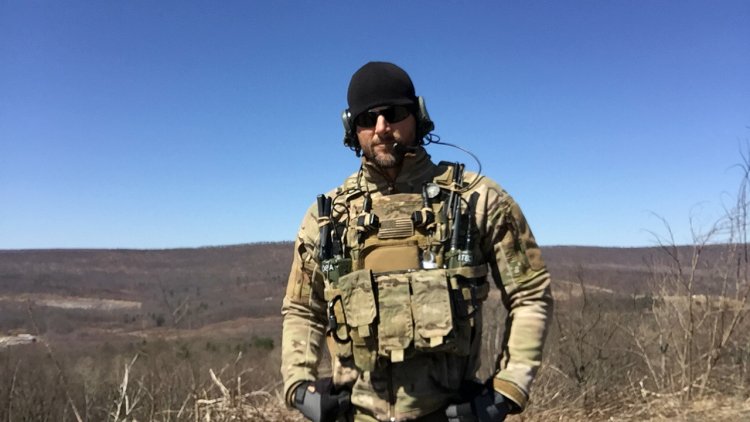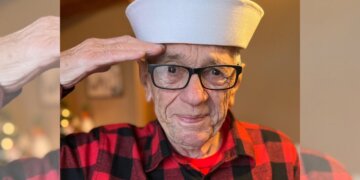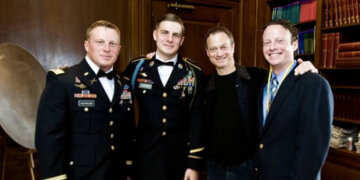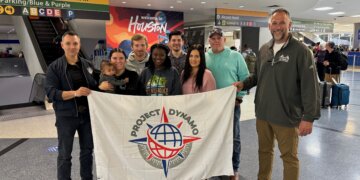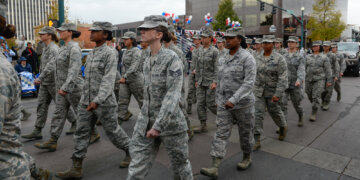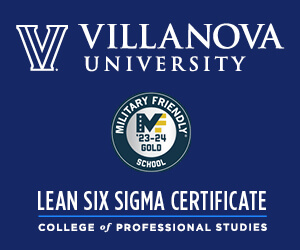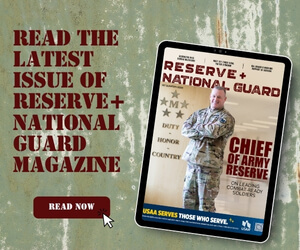As an Olympian and U.S. national champion javelin thrower, Michael Hazle had it all as a professional athlete. Despite the fame and money, he chose to walk away.
Growing up outside of Fort Hood in Texas, he was surrounded by the military, and drill instructors could often be found at his high school, running him and his football teammates through mock boot camps. It left a lasting impression.
“It was always in the back of my head. But as a young kid growing up in Texas, athletics was my job. It was all about sports,” Hazle said. “I ended up going to college on a football and baseball scholarship at Texas State University. I bounced back and forth between those two sports for three years until my junior year, when I tore my ACL on my left knee. That immediately ended my football and baseball career.”
Finding javelin
With his athletic future uncertain, Hazle was admittedly going through the motions of school and probably “partying” too much. Until a track coach offered him a spot on their team.
“He talked me into doing the decathlon, which is 10 events over two days, and it was horrible,” Hazle laughed. “I was getting laughed at for having to wear spandex and stuff like that. It was just out of my element, for sure. But the javelin throw was event number nine out of 10, and I was really good at throwing a javelin.”
RELATED: Army’s World Class Athlete Program prepares soldiers for Tokyo Olympics
He wasn’t just good– he was great. In 2002, Hazle qualified for the 2002 NCAA and U.S. outdoor championships. It was there he achieved his personal bests of 67.56 and 70.66 meters.

Hazle stuck with the sport, which eventually landed him in the 2004 Olympic Trials. From there, he competed at the Olympic Games, on two world championship teams, at the Pan American Games (where he earned a Silver medal) and medaled five times in the U.S. Championships.
The ‘military itch’
Despite his athletic success, Hazle found himself looking for more and began seeking purpose.
”I always had this military itch back in my head,” he said. “It was this burning desire to serve.”
After receiving a Navy SEAL officer billet for BUD/s for 2013, he was ready to go – Until the United States budget sequestration canceled his orders.
“It left me searching for an alternative option and a friend of mine started talking to me about being a combat controller,” he said.
At the time, it was a sure path into Special Operations and right into the fight, where he wanted to be.
Hazle bypassed the chance to commission through Officer Candidate School (OCS), despite having a master’s degree, and chose to enlist as an airman 1st class with the Air Force Reserve. But by the time he completed basic training and his schooling to become a special forces combat controller in 2015, he was 37 years old and the role he’d fought so hard for had changed.
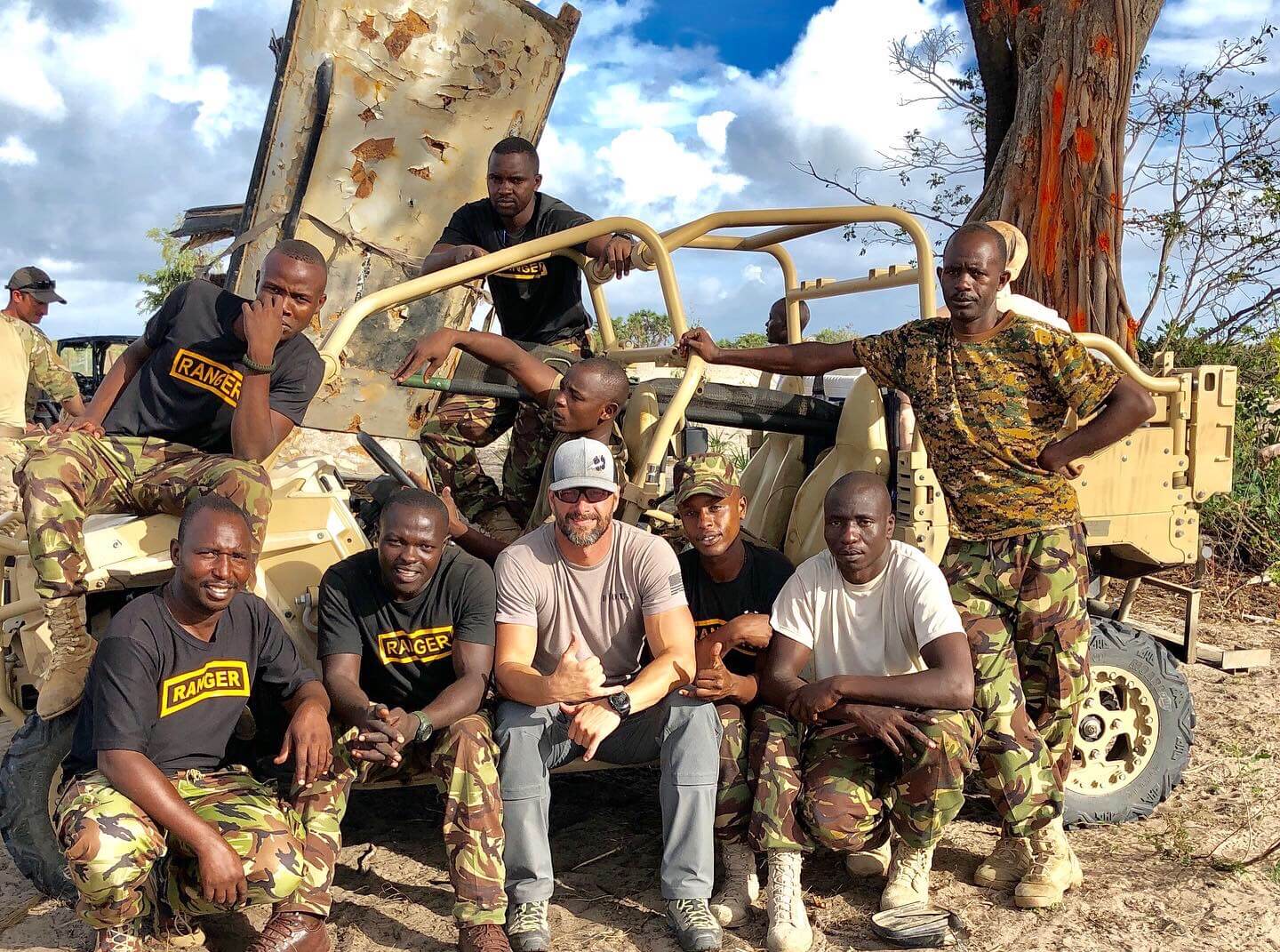
As the “old, new guy,” he was told he’d never have the chance to participate the way he’d dreamed. So upon the advice of a member of his command, he sought opportunities as a civilian contractor while maintaining his responsibilities as an airman within the Special Operations Combat Control.
“I had a really fantastic opportunity to go out and begin doing combat control-related work as a contractor in 2015 and make a lot of money while helping out in a capacity that was tenfold that I would have been able to do as a regular guy at the unit,” Hazle said. “Being able to deploy to Afghanistan and East Africa to really serve next to these guys was incredible.”
Olympian grateful despite ‘low’ moments
Reflecting on the college injury he thought would end any hopes of success and all of the other “low” moments throughout his life, Hazle remains grateful.
“If I hadn’t been injured I would have never tried out for track and become an Olympian. If I hadn’t gone to that initial unit, I probably wouldn’t have had the chance to pick up the contracting gig,” he said. “My role overseas as a contractor spawned into another contracting gig, which was a program manager position where I had the opportunity to go out and lead for three and a half years, guys at tier one special mission unit capabilities levels.”
Hazle left the Air Force Reserve in 2019 after six years of service and fulfilled his last overseas contract in 2021.
These days, he’s the vice president of marketing at Keiser Corporation.
“I’m tasked with changing the company culture and image of one of the highest quality strength conditioning companies on the planet, which is awesome for me because I use their equipment now, and I used it as an Olympic athlete and when I was an operator,” he said.
Though his new responsibilities come with challenges, Hazle lives by a motto he learned early on in his military career.
“Stress is dictated by penalty. When you’re overseas in a combat environment, whether you’re on the ground or you’re in the air – the penalty is possibly messing up and not getting out of it,” he explained. “I can deal with the day-to-day of civilian life even at its most stressful moments when I remember that.”
As he reflected on his time in the Guard, as a contractor and as an Olympian – he’s got no regrets, only hope for the future.
“All the choices you make throughout your life, both good and bad, ultimately lead to wisdom,” Hazle said. “I think that’s the ultimate goal. It’s just living and having these life experiences which make you who you are.”
Read comments


